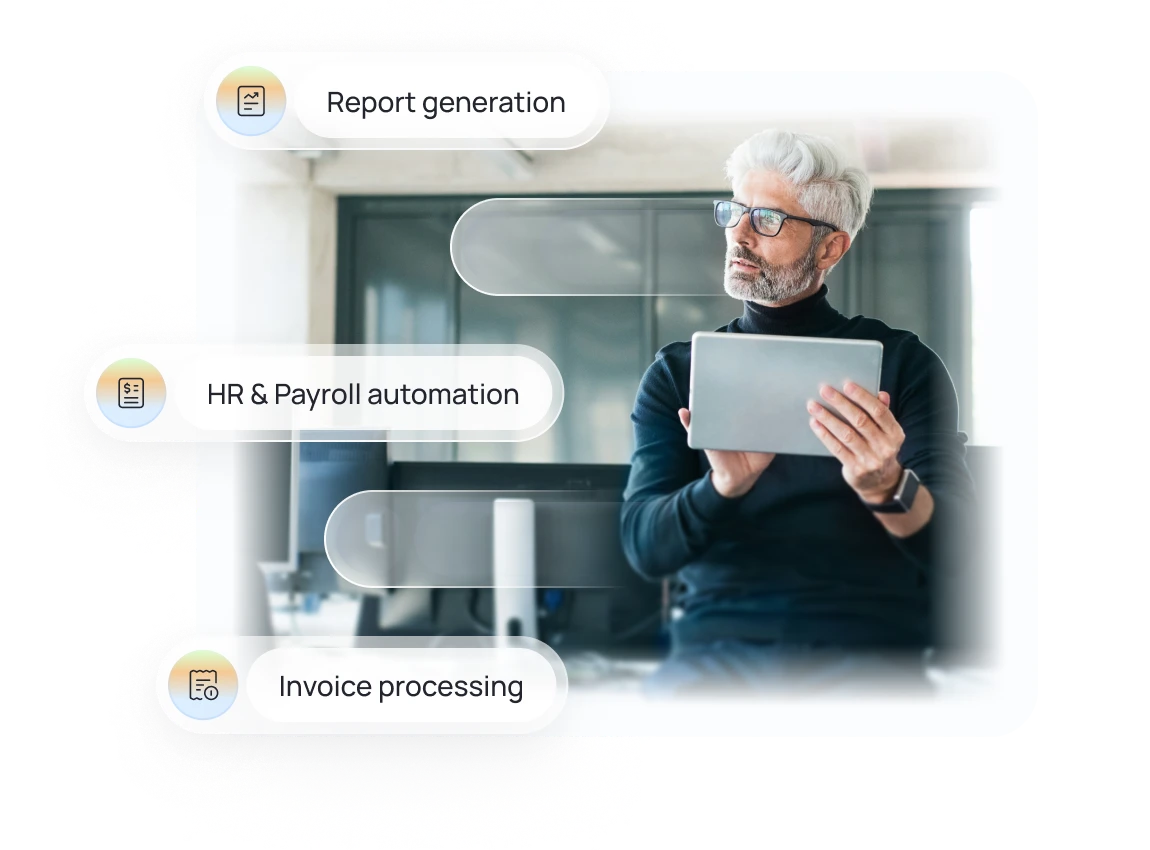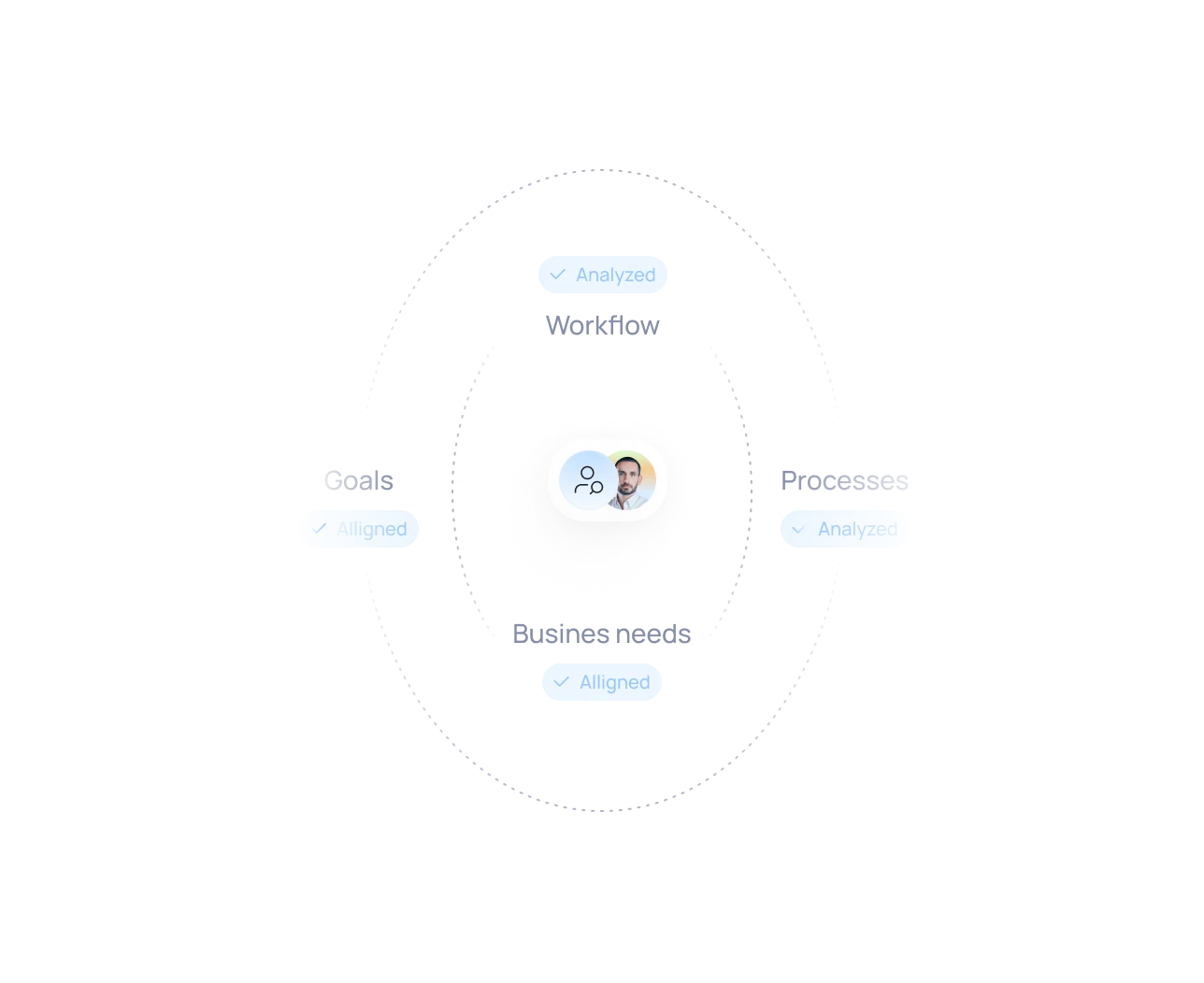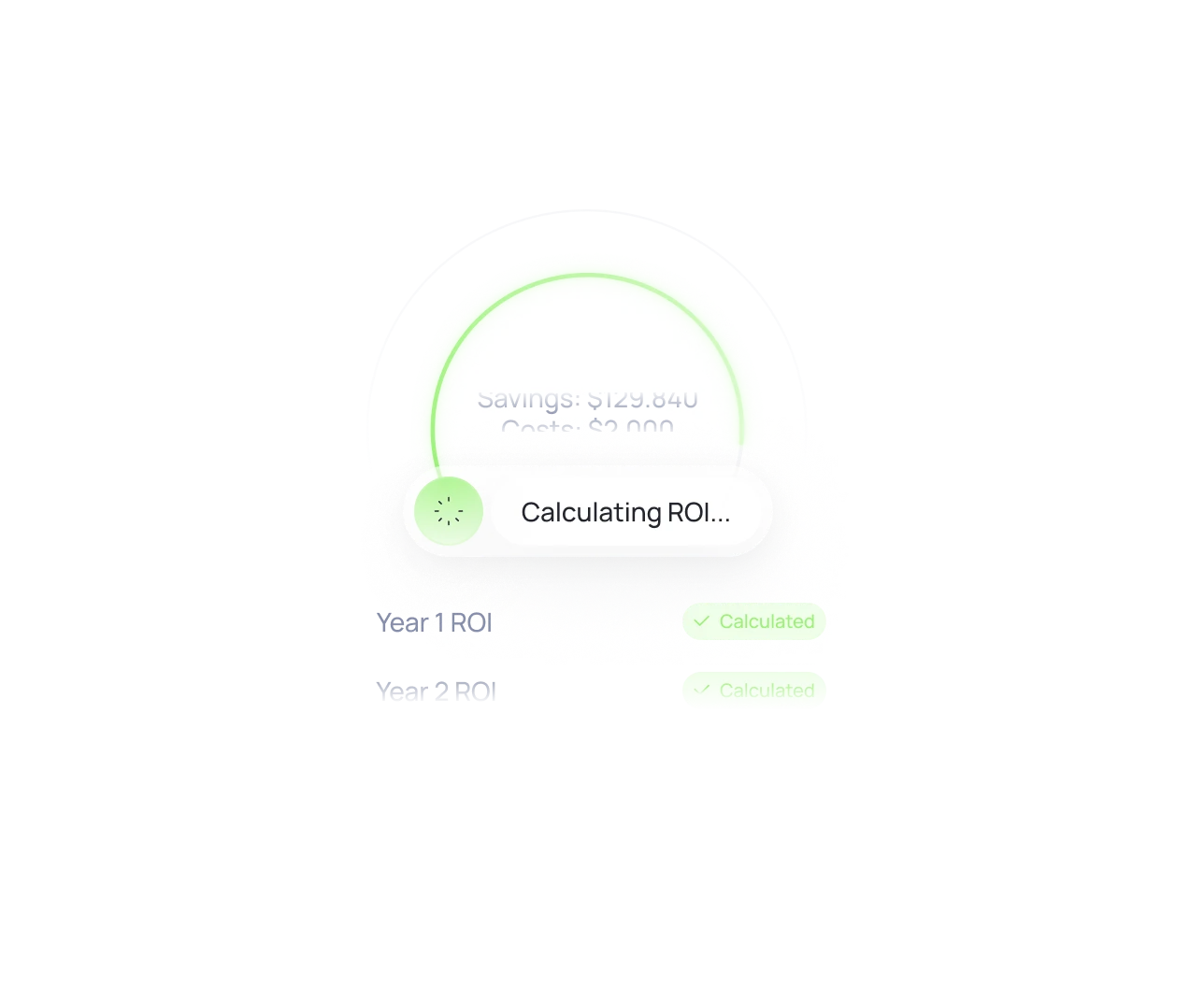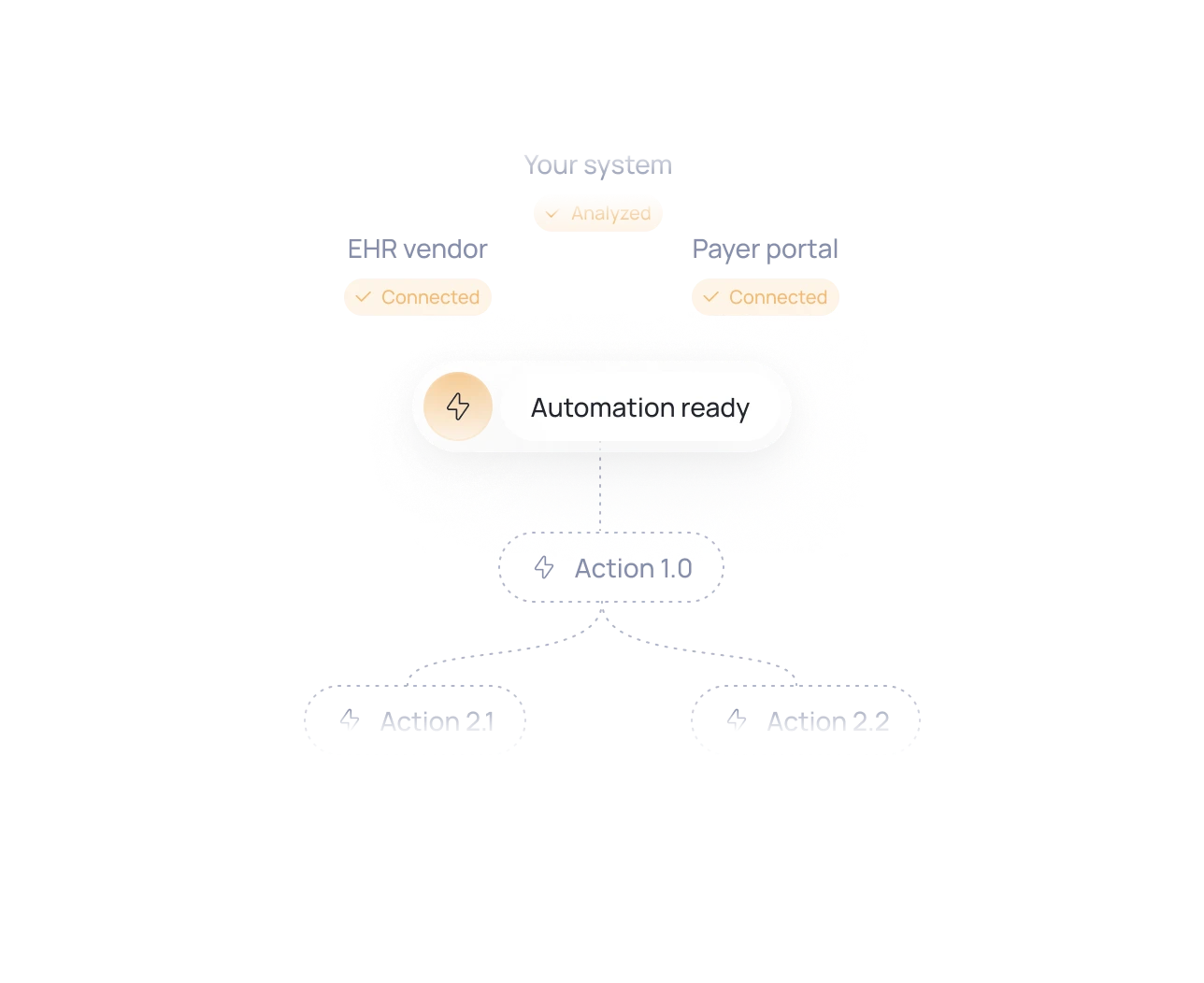We can automate everything. Every process. Every system.
Looking for a fine-tuned AI solution? We know RCM end-to-end.







We'll find a clear path to positive ROI
Today, almost anything is automatable. But the real work is deciding what actually makes business sense. During the first call we’ll go through your workflows together, understand how you operate, and identify what might make sense to automate.
This conversation is about your goals, processes, and your business reality. We don’t sell generic bots you don’t need.
After the call, we validate whether the automation makes sense or not. We'll assess if the project will: - reduce cost or increase throughput? - make business sense to automate? - deliver tangible profits? If the answer is no to any of those, we tell you. Zero pressure. Zero BS.
If the use case is strong, we design the automation around your systems, your rules, and your real-world constraints. Our solutions will plug into what you already use - Epic, Meditech, athenahealth - you name it. Payer portals included. The only thing left is to wait for the profits.



agentic AI automation is a natural step in RCM evolution.
And we have several proof of this.


+$50K Saved in 1 Month | AI Agent For Denials Management
This case demonstrates how AI-driven denial automation eliminated ~90% of manual rework, reduced claim processing time from ~6 minutes to ~30 seconds, cleared 80% of a 3,000-record backlog in three weeks, and delivered $90K+ in savings with 500+ hours saved monthly.
+$50K
Saved in 1 Month. Discover AI automations that reduce 90% of manual re-work for RCM teams.


70% Faster Claim Turnaround Time (CTT) | Claim Management Automation
SuperBill’s case shows the power of document-to-claim automation. Our prior authorization AI agent made Claim Turnaround Time (CTT) by ~70%
70%
Faster Claim Turnaround Time (CTT). See how document-to-claim automation accelerated out-of-network reimbursement workflows.


98% Reduction in Manual Claim Prep | Claims Management Automation
Gentem’s case demonstrates how an agentic AI automation layer strengthens the entire claims lifecycle without adding headcount or forcing changes to existing EHRs with 1,2 FTE saved a month
98%
Reduction in manual claim prep. See how an automated EHR-to-claim data pipeline removed up to 250 hours per week of manual RCM work.
Not sure what to choose?
You’re 3 clicks away from finding the right automation for your RCM workflow.

Explore our AI Agents

Denials Management Automation
Prepares claims and flags rejection risk early.

Claims Management Automation
Recovers rejected claims 24/7.

Prior Authorization Automation
Speeds up pre-authorizations. No API required.

Eligibility Check Automation
Automates patient eligibility checks instantly.


